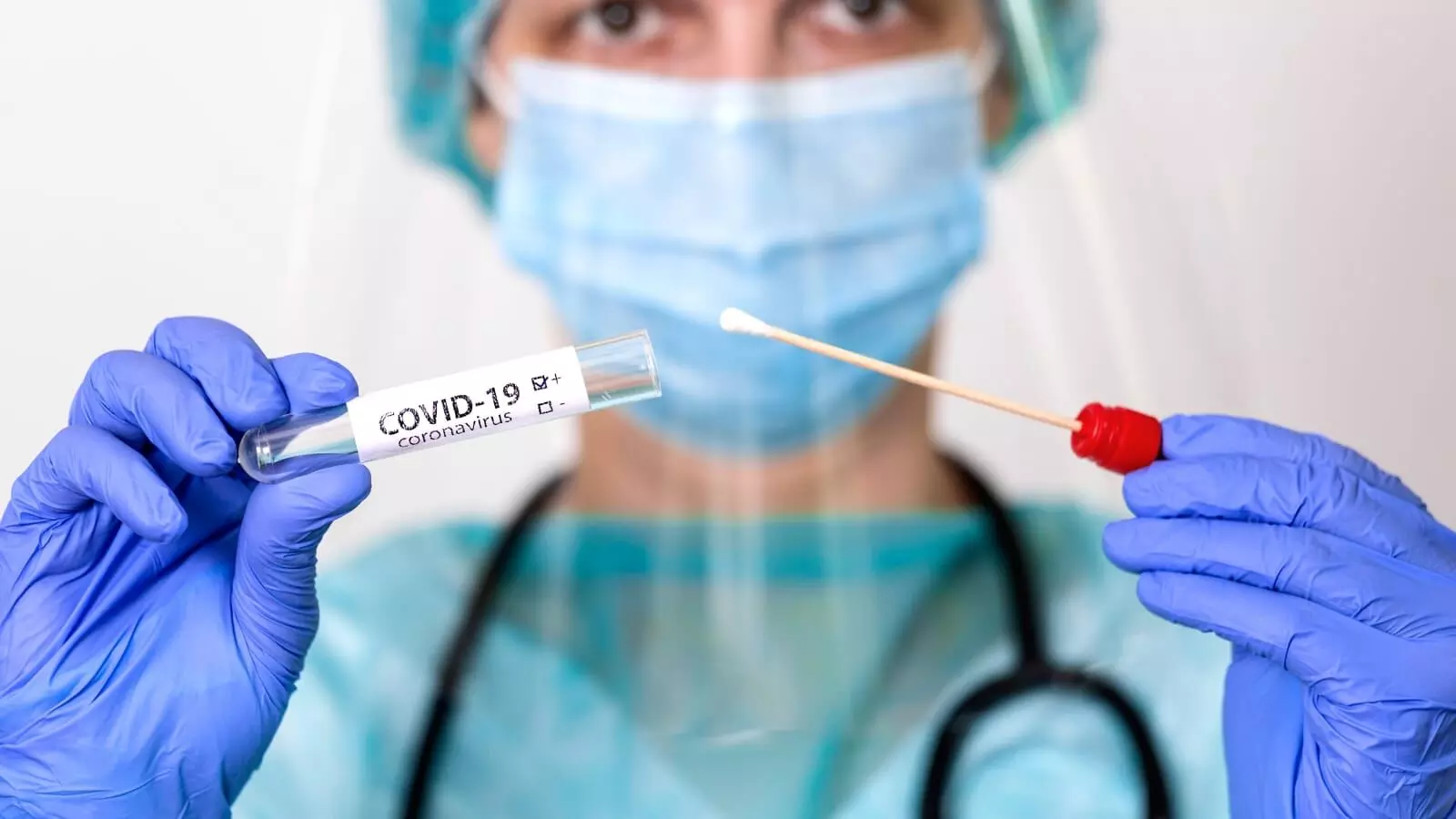`FELUDA’: Why technologically successful Covid test kit needs scaling up
The kit was developed by Indian scientists from the CSIR-Institute of Genomics and Integrative Biology (IGIB) Delhi
By Sulogna Mehta
Hyderabad: Demand for Covid detection kit `FELUDA’ has dropped since the coronavirus pandemic entered the endemic stage.
The kit was developed by Indian scientists from the CSIR-Institute of Genomics and Integrative Biology (IGIB) Delhi. Its demand increases occasionally and that too when seasonal Covid cases rise.
Health experts point out that coronavirus will not completely disappear. They said its presence would be felt sporadically just like any other virus in the environment.
However, besides Covid, Feluda can also be used for early diagnosis of infectious diseases and understanding of various pathogens such as a mutation in sickle cell anemia and drug-resistant bacteria, etc.
When the country was reeling under a shortage of Covid test kits, especially during 2020-21, a group of scientists at the CSIR-Institute of Genomics and Integrative Biology (IGIB) Delhi, had come up with a novel FnCas9 Editor Linked Uniform Detection Assay (FELUDA).
Dr Souvik Maiti, Shanti Swaroop Bhatnagar awardee scientist and director of CSIR-IGIB, New Delhi delivered a talk at the science symposium and discussed FELUDA
The test kit has been named after the Oscar awardee film director Satyajit Ray’s fictional detective character Feluda.
Feluda Test Kit based on genome editing
Feluda is a cutting-edge molecular diagnostic technique that can revolutionize disease detection and management. Feluda utilizes the Nobel-prize-winning CRISPR-Cas technology or Cas9 gene-editing system to detect the genes specific to the SARS-CoV-2 virus. It enables highly specific and sensitive detection of nucleic acids in biological samples.
Speaking about the Feluda kit, Dr. Maiti informed that the technique, developed by him and principal scientist Debojyoti Chakraborty from IGIB and three students, is rapid, cost-effective, and can be performed with minimal infrastructure and technical expertise, making it suitable for implementation. It offers a promising solution for early diagnosis and monitoring of various infectious diseases, including viral infections such as Covid-19, detecting a mutation in sickle cell anemia and H.Pylori or Helicobacter pylori, a pathogen (spiral bacterium) that causes drug resistance, etc.
Challenges – technology needs scaling up commercially
The test kit however was not much successful on a commercial level. “Though technology-wise it was a success, but as a business model, it was not much and needed scaling up. Tata MD (Medical and Diagnostics) utilized the technology and around 35 to 40 lakh test kits were sold. With the covid cases subsiding, the demand has also now come down for Covid diagnostic tests,” said scientist Maiti.
DNA diagnostics to detect diseases
In general, DNA diagnostics plays a crucial role in the detection and diagnosis of various diseases, encompassing viral infections, antimicrobial resistance (AMR), and genetic disorders. By analyzing the genetic material present within an individual’s DNA, healthcare professionals can identify specific disease-causing agents. Through techniques such as real-time polymerase chain reaction (RT-PCR) or next-generation sequencing (NGS), the presence of DNA can be detected and quantified, enabling the identification of specific viruses or bacteria responsible for infection.
Scarcity of test kits during covid waves
However, in the recent past, scarcity of diagnostics during the COVID-19 pandemic was widely felt in 2020-21. Since the emergence of SARS-CoV-2, the virus responsible for COVID-19, the demand for accurate and accessible diagnostic tests has been overwhelming. One of the primary factors behind the scarcity is the sheer scale of the pandemic. With millions of people requiring testing, the production and distribution of diagnostic tests have struggled to keep pace.
Manufacturing capacity limitations, shortages of raw materials, and supply chain disruptions have hampered the ability to rapidly produce and distribute tests on a mass scale. Additionally, the development and validation of accurate diagnostic tests take time.
While various types of tests have been developed, including PCR-based tests, antigen tests, and antibody tests, each with its strengths and limitations, ensuring their accuracy, sensitivity, and specificity requires extensive research and validation.
Symposium on popular science
The science symposium for school students or the 11th seminar on popular science organized by the Alumni Association of Jadavpur University (JU) – Hyderabad chapter, was recently held at the Indian Institute of Chemical Technology (IICT) auditorium after a gap of three years, due to the global pandemic. Around 150 students and teachers from various schools in Hyderabad and Secunderabad participated. After the guest lectures, a poster competition and quiz contest were held for the students.